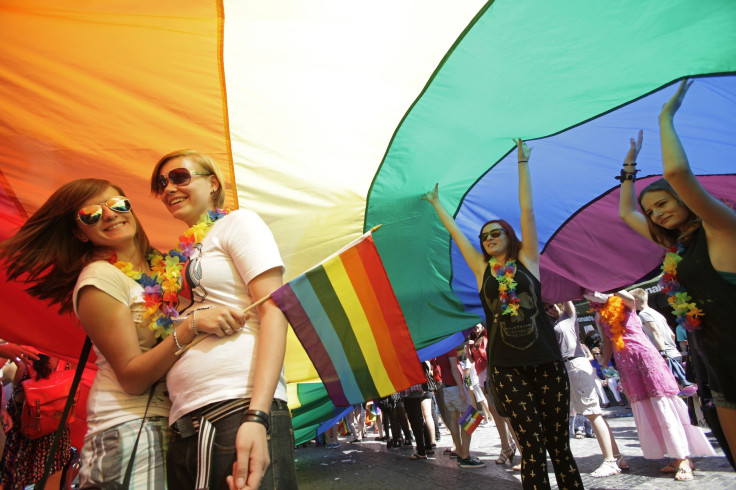Leelah's Law: Conversion Therapy Proponents Decry Obama's Push For A Federal Ban On LGBT Treatment

Rich Wyler says conversion therapy saved his life. Twenty years ago, he was married to a woman but attracted to men, and it was driving him to the brink of suicide. He panicked: What if she left? What if she took the kids? Reparative "conversion therapy" taught Wyler how to deal with his homosexual desires, he said, and now he's concerned other gay Americans might lose it as an option.
Advocates for lesbian, gay, bisexual and transgender rights cheered the White House's decision this week to come out in favor of banning conversion therapy for youth. President Barack Obama responded publicly Wednesday night to Leelah's Law, a 120,000-signature petition requesting the federal government ban the practice that aims to "cure" people's sexual orientation or gender identity, saying his administration supported the movement.
Advocates like Wyler, however, argue that conversion therapy remains an important tool for LGBT youth. "You're closing off one solution and not the others that might work for some youth," said Wyler, director of People Can Change, a nonprofit that offers workshops for men with same-sex attractions in Charlottesville, Virginia. "If I could have found it when I was 16, 18 years old, it could have saved me a great deal of heartache."
Conversion therapy often involves using religion to try to switch patients' sexual orientation. In the past, counselors have also tried hypnosis, shame and electric shocks to attempt to change people's sexual desires, says the National Center for Lesbian Rights, a law group in San Francisco. Modern methods center around behavioral and cognitive programs that try to reduce same-sex attraction.
Shaky Science?
A growing number of activists and professional organizations have discredited conversion therapy for having a shaky scientific basis and treating homosexuality as a mental disorder. The American Psychiatric Association, the American Psychological Association and the American Counseling Association are among the groups that oppose the practice, saying it can cause depression, anxiety or self-destructive behavior. Lawmakers in 18 states have introduced legislation to outlaw conversion therapy for minors, while California, New Jersey and Washington, D.C., already have bans in place, the Associated Press reported.
"Psychological abuse has no place in therapy, no matter the intention. Conversion therapy uses fear and shame that no child should be exposed to, telling young people that the only way to find love or acceptance is to change the very nature of who they are," Human Rights Campaign president Chad Griffin said in a statement.
The issue made headlines last year when Leelah Alcorn, a 17-year-old transgender girl, killed herself in Ohio after being forced into conversion therapy by her parents. Her suicide note begging for change inspired Leelah's Law, a petition in her honor saying that "therapists that engage in the attempt to brainwash or reverse any child's gender identity or sexual orientation are seriously unethical" and should be banned.
Chris Doyle, director of the International Healing Foundation, a nonprofit for people and families struggling with sexual orientation, in Bowie, Maryland, said he suspects the counselor who treated Leelah was not properly trained. Qualified reparative therapists work with clients to resolve underlying issues that may be causing unwanted same-sex attraction, and participating in therapy should be a choice, he said.
Doyle acknowledged that reparative techniques may not work for everyone, but he said politicians shouldn't shut them down. "We need to welcome all youth and give them all the choices that are on the table," he said. "That's the American way to do it."
'Nobody Changes'
Tim Rymel, author of "Going Gay," said conversion therapy didn't work for him. Rymel was raised in a conservative, Christian home. He entered a pro-conversion therapy ministry and married a woman. He left the ministry in 1996, and his wife left him six years later.
Rymel, now a gay rights activist, said the ministry was helpful in that it connected him with other people going through the same thing. But ultimately he said that "it didn't work -- nobody changes."
A ban on conversion therapy for youth wouldn't limit anyone's rights, Rymel said, because parents could still seek advice from churches or counselors.
But conversion therapy proponents argue that's enough. David Pickup, a licensed psychotherapist in Dallas, said he worries what could happen if the bans come to fruition. "[Suppose] a heterosexual little boy walks into my office -- crying, confused, depressed, doesn't know where to turn -- [and] he asks me and his parents to help him eliminate or reduce those feelings," Pickup said. "And I have to tell him, yes, I can help you, but the United States won't allow me."
© Copyright IBTimes 2025. All rights reserved.






















